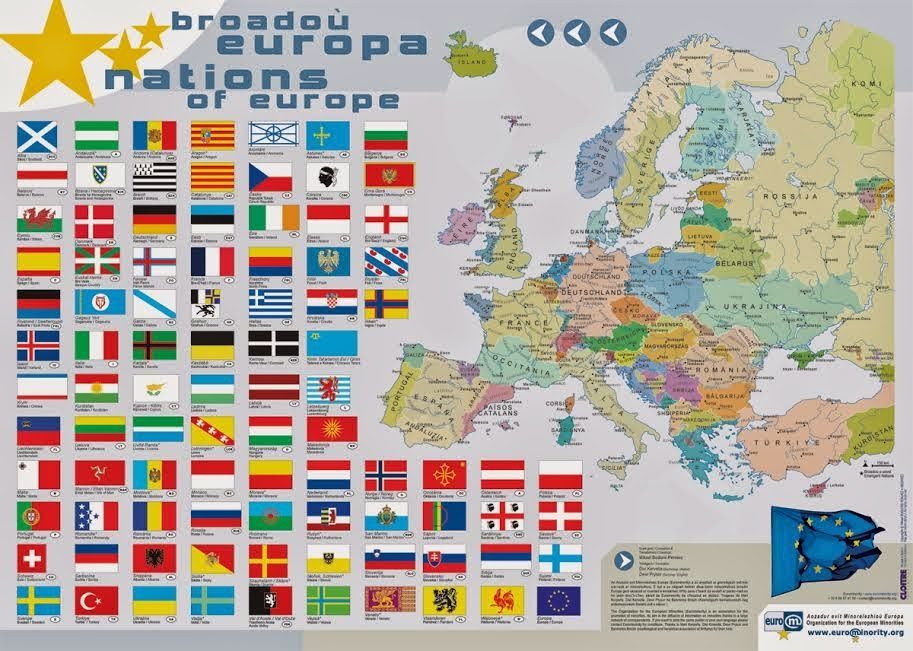The "right to decide"
There is NO "right to decide" of a few when it comes to collective matters. If a group of Catalans (who are still not in the majority in Catalonia, and who at a national level do not even represent 10% of the Spanish population) can become independent because they feel like it, why can't a group of Basques, or Galicians, or the tennis group in my neighbourhood become independent? Why can't I declare the republic independent of my house if I can get all the members of my family to agree. Don't I have the right to decide? I mean, how far can we stretch this "right to decide" stupidity? Who decides who has the right to decide and who doesn't?
This right to decide is a fallacy with which all Spanish people have been manipulated. When you see Spanish people supporting Catalans, from Madrid, Valencia etc... they are not supporting independence, no one wants the independence of Catalonia, they defend the invented right to decide. A responsible state cannot encourage this kind of nonsense that jeopardises the unity and sovereignty of a nation and therefore leaves all the citizens of that nation defenceless.
In international law, the only right that allows a region to become independent is the "right of self-determination", as far as I know, which protects colonised regions and also nations that joined in the past so that they can now claim their independence. And this right also protects historic nations (and Spain is one the oldest of all European nations) from foreign influences and local powers that want to destabilize a nation through any process of independence. This right may apply to Scotland or Ireland, but not to Catalonia, which was never a colony, nor was it ever a nation. The only way to achieve independence in Catalonia is to invent this "right to decide" that puts all nations at international risk if this right begins to be applied as legitimate.
I don't understand laws, I'm learning at a forced pace to understand a little what's going on, but if there's someone reading this who's a lawyer maybe can explain better than me what all this: the right to self-determination and the crimes of rebellion and sedition. Because when I listen to jurists, they talk about rights and crimes that are fundamental to the protection of peoples, and I would like to know if that is really the case.
There is NO "right to decide" of a few when it comes to collective matters. If a group of Catalans (who are still not in the majority in Catalonia, and who at a national level do not even represent 10% of the Spanish population) can become independent because they feel like it, why can't a group of Basques, or Galicians, or the tennis group in my neighbourhood become independent? Why can't I declare the republic independent of my house if I can get all the members of my family to agree. Don't I have the right to decide? I mean, how far can we stretch this "right to decide" stupidity? Who decides who has the right to decide and who doesn't?
This right to decide is a fallacy with which all Spanish people have been manipulated. When you see Spanish people supporting Catalans, from Madrid, Valencia etc... they are not supporting independence, no one wants the independence of Catalonia, they defend the invented right to decide. A responsible state cannot encourage this kind of nonsense that jeopardises the unity and sovereignty of a nation and therefore leaves all the citizens of that nation defenceless.
In international law, the only right that allows a region to become independent is the "right of self-determination", as far as I know, which protects colonised regions and also nations that joined in the past so that they can now claim their independence. And this right also protects historic nations (and Spain is one the oldest of all European nations) from foreign influences and local powers that want to destabilize a nation through any process of independence. This right may apply to Scotland or Ireland, but not to Catalonia, which was never a colony, nor was it ever a nation. The only way to achieve independence in Catalonia is to invent this "right to decide" that puts all nations at international risk if this right begins to be applied as legitimate.
I don't understand laws, I'm learning at a forced pace to understand a little what's going on, but if there's someone reading this who's a lawyer maybe can explain better than me what all this: the right to self-determination and the crimes of rebellion and sedition. Because when I listen to jurists, they talk about rights and crimes that are fundamental to the protection of peoples, and I would like to know if that is really the case.


